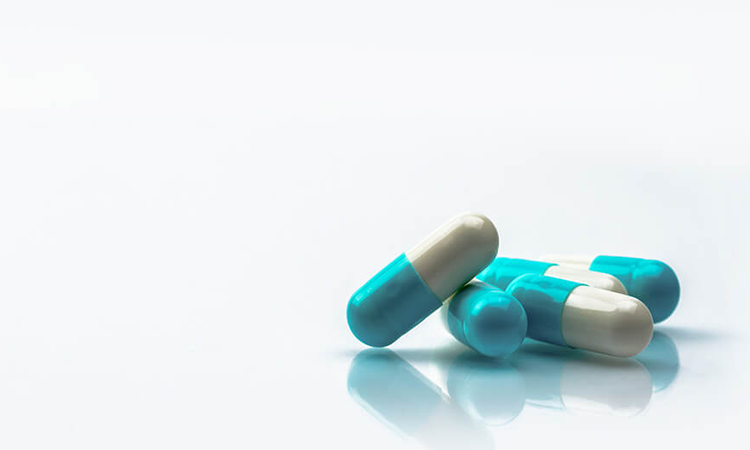
Zohydro ER contains the active ingredient hydrocodone, an opioid analgesic. Zohydro’s extended release formula is indicated for the management of pain severe enough to warrant every day, around-the-clock, long-term opioid treatment and for which other treatment options have been found to be inadequate.
Zohydro has the potential for abuse and addiction. Hydrocodone is a moderately potent opioid that can lead to dependency due to its impact on the brain’s reward system – namely, the mass release of transmitters such as dopamine and serotonin, chemicals responsible for feelings of euphoria.
Zohydro ER use can result in adverse side effects, including the following:
- Nausea and vomiting
- Constipation
- Lightheadedness and dizziness
- Drowsiness
- Fatigue and tiredness
- Mood changes
- Depression or anxiety
- Agitation and irritability
- Confusion
- Stomach pain
- Incontinence (difficulty urinating)
- Tremors
- Sweating, especially at night
- Urinary tract infection
- Respiratory infection
- Itching and rashes
Zohydro ER is customarily administered as a capsule containing 10mg, 15mg, 20mg, 30mg, 40mg, or 50mg of hydrocodone. A single dose over 40mg or more than 80mg over the course of a total day are only appropriate for patients whose tolerance to an opioid of similar potency has already been established.
In 2015, Pernix Pharmaceuticals, the makers of Zohydro, announced a new abusive-deterrent formula. Still, the manufacturer continues to issue the following warning: “Always swallow Zohydro ER capsules whole. Do not cut, break, chew, crush, dissolve, snort, or inject Zohydro ER because this may cause you to overdose and die.”
What is Zohydro Addiction?
Due to the addiction potential of opioids, Zohydro use can lead to dependency even when taken as directed by a doctor. Signs of a Zohydro addiction may include the following:
- Obsession with obtaining and using Zohydro.
- Lack of interest in activities once considered enjoyable.
- Poor performance at school, work, or home.
- Financial problems or legal issues related to excessive drug use.
- Continued use of hydrocodone despite unwanted physical and psychological side
- effects.
- The use of hydrocodone in hazardous or inappropriate situations (e.g., operating a motor vehicle).
- Adverse changes or issues related to relationships and social life.
- General malaise, fatigue, or sedation.
Zohydro Abuse and Addiction – Tolerance and Dependency
When Zohydro is used for a prolonged period, tolerance and dependence can develop. Tolerance is the result of the brain’s tendency to respond to a substance by lessening its overall impact – in other words, repeated exposure = diminished response. Tolerance often compels users to use more of the drug in an effort to achieve the desired effects (e.g. euphoria and pain relief.)
Dependency is a condition characterized by the brain’s inability to function correctly without the presence of a particular substance to which it has adapted. Efforts to cut back on use or quit lead to unpleasant side effects called withdrawal symptoms. These effects are often the catalyst for relapse, and their severity is largely determined by the amount of the average dose and frequency/duration of use.
Symptoms of Zohydro ER withdrawal may include the following:
- Severe headache
- Dry mouth
- Abdominal aches and pains
- Constipation
- Nausea and vomiting
- Stuffy nose and flu-like symptoms
- Shaking and tremors
- Impaired motor coordination
- Slurred speech
- Irritability
- Moodiness – depression or anxiety
- Seizures
- Confusion and paranoia
Zohydro ER and Overdose
Abusing hydrocodone, especially in conjunction with other drugs such as benzodiazepines or alcohol can lead to life-threatening central nervous system depression, overdose, and death.
Symptoms of a hydrocodone overdose include:
- Vomiting
- Lightheadedness/dizziness
- Restricted pupils
- Low blood pressure (hypotension)
- Pale skin, blue color to lips and nails
- Limp body and cold, clammy skin
- Unresponsiveness/Unconsciousness
- Seizures
- Extremely slow heart rate
- Extremely slow labored respiration
- Stopped breathing/respiratory arrest
- Coma
- Death
An overdose of Zohydro is a medical emergency. If you or someone is experiencing the above symptoms related to the use of Zohydro or other drugs or alcohol, please call 911 immediately.
Treatment for Zohydro ER Addiction

Persons experienced an addiction to Zohydro should seek professional treatment as soon as possible. Treatment usually begins with a medical detox, a process in which the patient is monitored around-the-clock for several days and medication is rendered to prevent complications and alleviate withdrawal symptoms.
Following detox, patients are encouraged to undergo long-term residential and/or intensive outpatient treatment. Both programs include individual and group therapy, family counseling, 12-step program participation and complementary therapeutic approaches such as yoga, meditation, and art therapy.
Inpatients reside at the center for 30 days or longer and benefit from 24/7 medical care and mental and emotional support. Outpatients live at a private residence and visit the center several times per week for therapy and counseling sessions. These patients benefit from participation in ongoing treatment services and recovery support after rehab while transitioning back into society.
After intensive treatment has been completed, former patients can benefit aftercare planning services and alumni activities that provide long-term professional and peer support.